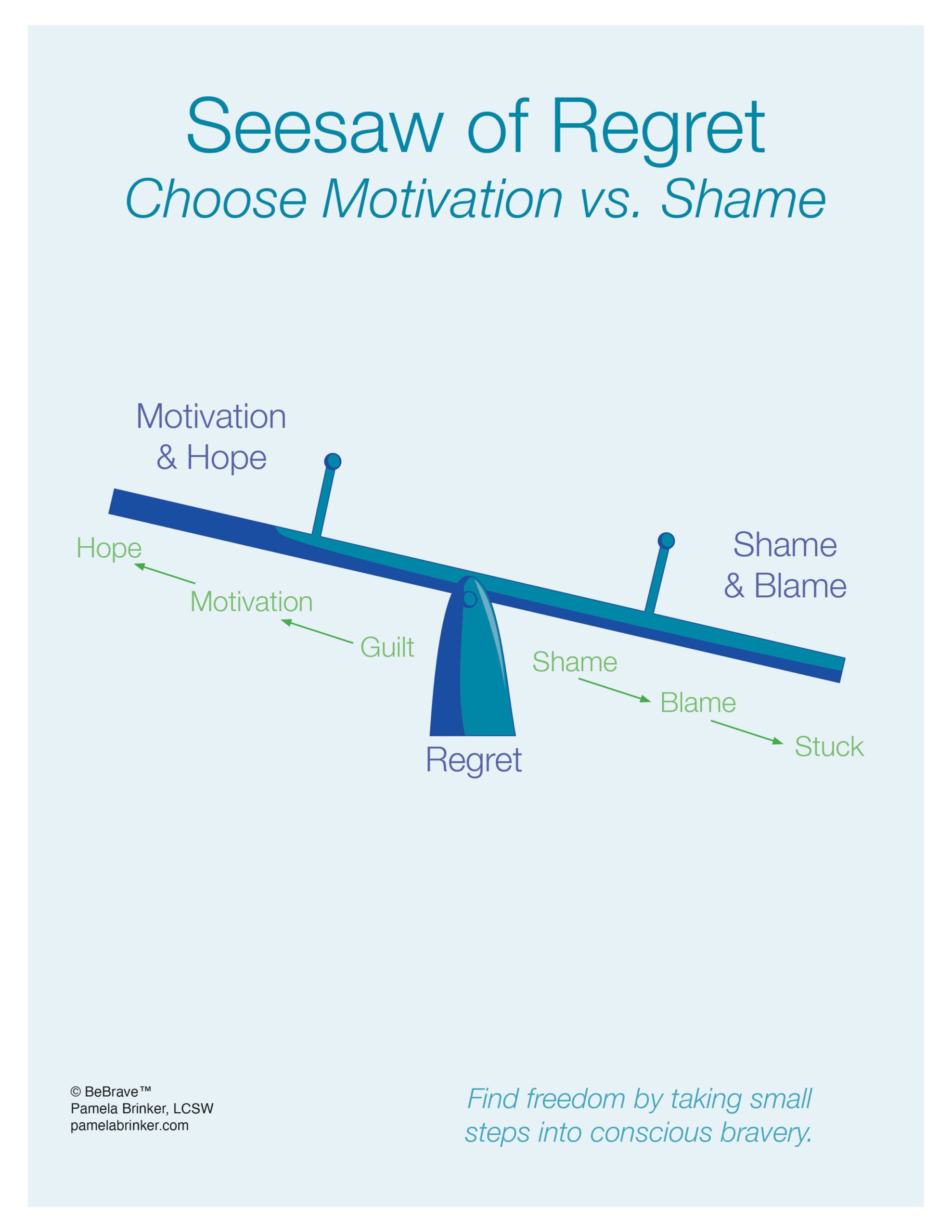Stuck in Regret?
Regret is feeling remorse or sadness about having done or not done something.
Regret can come to our aid like a wise advisor or a guiding light depending on our perspective! Its productive signal helps us to bravely behave differently when we listen to it openheartedly without heaping self-condemnation on top of it.
Honest regret exists in the middle on a pendulum of our awareness & behavior. We can swing the ball of regret from shame and stuckness over to guilt, motivation and hope. How? With mindful awareness, non-judgment, and commitment
Awareness that stems from a desire to have compassion for ourselves and others, rather than making ourselves feel miserable, can shift our regret into an incentive to change. Eventually, we can feel hopeful.
Guilt is different from shame. With responsible guilt, we take accountability for our actions and are motivated to make amends. Guilt can be a springboard into our redemptive changes, vs. long-term shame which imprisons us with its pronouncement of doom.
Shame is an unpleasant alert but can be productive. Shame is only debilitating if we fuel it, or if it’s combined with trauma, and it becomes a prolonged state. A condition of shame keeps us stuck in regret, self-deprecation, or blaming someone else: “I’m an idiot,” or “They’re terrible.”
Allowing our feelings, then moving the negative energies through us (over time and with mindfulness) helps us to heal and keeps us healthier. As we eventually mend, we drop the ball of regret and come off the pendulum…until facing our next mistake or regret. Then hopefully, we can swing the ball in the direction of guilt and motivation sooner than previously, move through the challenge, and jump off the regret pendulum again. We’re human, and mistakes are part of life, so this is a repeat process.
Prolonged shame fuels the devastation and hopelessness we feel. Taking action, with one small step, activates our conscious bravery. Swinging the ball of shame over to productive guilt, we experience motivation to change, then hope.
To move out of shame or blame, can you allow your feelings, partnering with regret as a helpful guide instead of a punishing tormentor?

